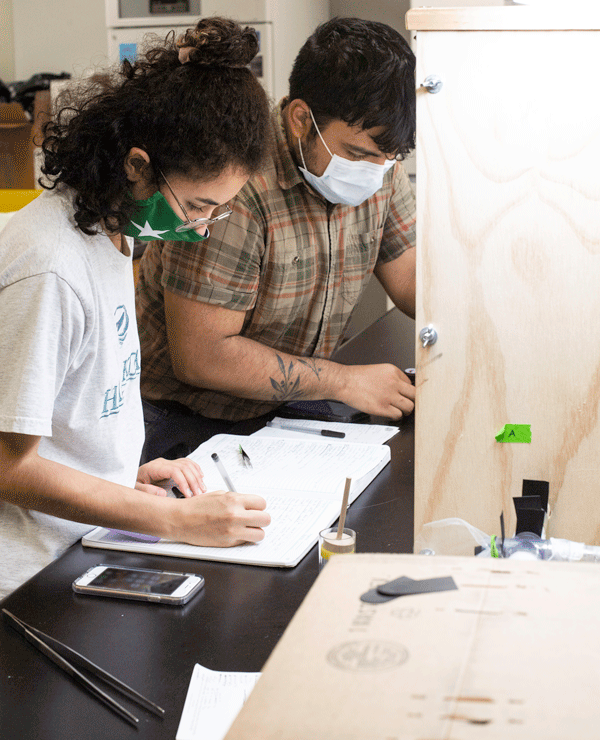
Bees and their importance to the survival of food crops and biodiversity have received a lot of attention in recent years. UNT became a Bee Campus USA in 2016, and in 2019 the College of Science recruited Elinor Lichtenberg, assistant professor of ecology, who studies plant-pollinator interactions. She researches bees and other insects that visit flowers, their behavior and ecology, how humans affect these insects, resources needed for insects to thrive and how to help improve sustainable ranching practices.
“Without these pollinators, it would be a much different world,” Lichtenberg says. “There would be a lot fewer flowers. And a lot of our fruits, vegetables and nuts are heavily dependent on insect pollination. Without them, our diets would be very starchy.”
While honey bees are important pollinators, they are not the only pollinators. In fact, in Texas there are about 800 to 1,000 bee species. Lichtenberg focuses primarily on wild bees and other insects.
“My background is both in animal behavior and community ecology,” Lichtenberg says. “I’m really interested in how various types of human activities are affecting communities of flower-visiting insects, and also the interactions that are going on within those communities.”
Lichtenberg’s lab is currently working on two projects, one of which is in collaboration with the Dixon Water Foundation, researching how grazing practices affect plant-pollinator interactions. At several ranches near UNT, Lichtenberg samples the pollinator community and quantifies food and shelter resources to determine which habitat elements are changing the communities as well as to understand the resources that pollinators need.
“This is really important if we want to develop data-driven land management practices that help us support biodiversity while also letting farmers sustain their livelihoods,” Lichtenberg says. “We are increasing our understanding of the natural histories of these insects. We also study the mechanisms that link habitat to biodiversity, to understand the ecology of habitat-biodiversity relationships.”
The second research project, looking at the behavioral side of pollinators, is conducted in Lichtenberg’s lab and is run primarily by undergraduate students. The goal of this project is to determine whether bees can learn about plants by observing other flower visitors.

Lichtenberg received her undergraduate degree in biology from the University of Maryland at College Park, then went on to receive her Ph.D. in biology from the University of California San Diego, where she first became interested in plant-pollinator relationships.
“I find this research fascinating,” Lichtenberg says. “Personally, I think it’s important to do research that can contribute to sustainability. Pollination and pollinators are a great system for doing that.”
After graduate school and before she came to UNT, Lichtenberg completed three postdoctoral fellowships: at Washington State University, the University of Arizona, and the University of Texas at Austin. She was originally drawn to UNT’s diverse student body and the Department of Biological Sciences.
Recently, Lichtenberg co-authored a paper in the Annual Review of Resource Economics alongside two economists from the University of Maryland and the University of California, Santa Barbara. Together, the three authors looked at the economics of crop pollination.